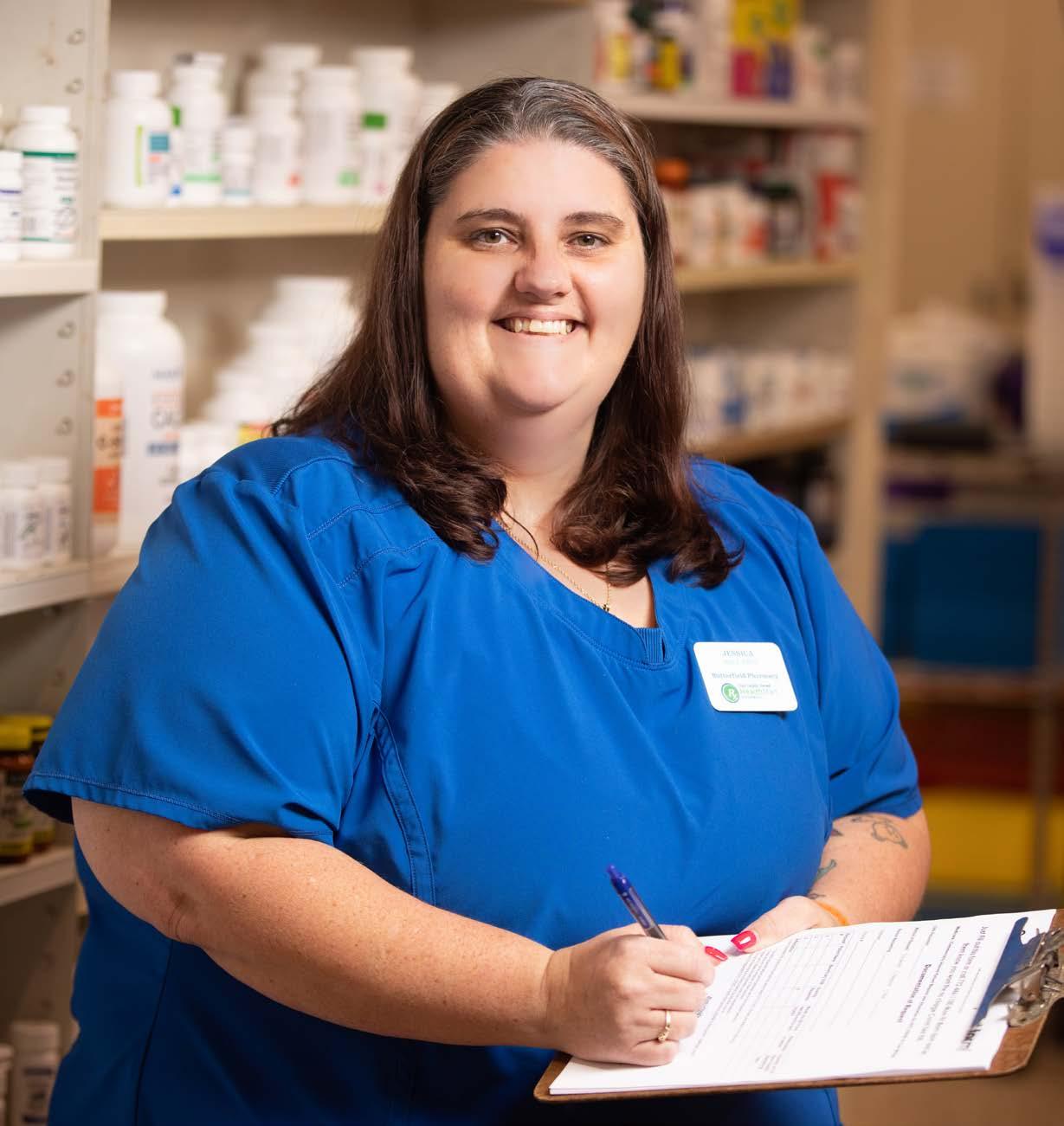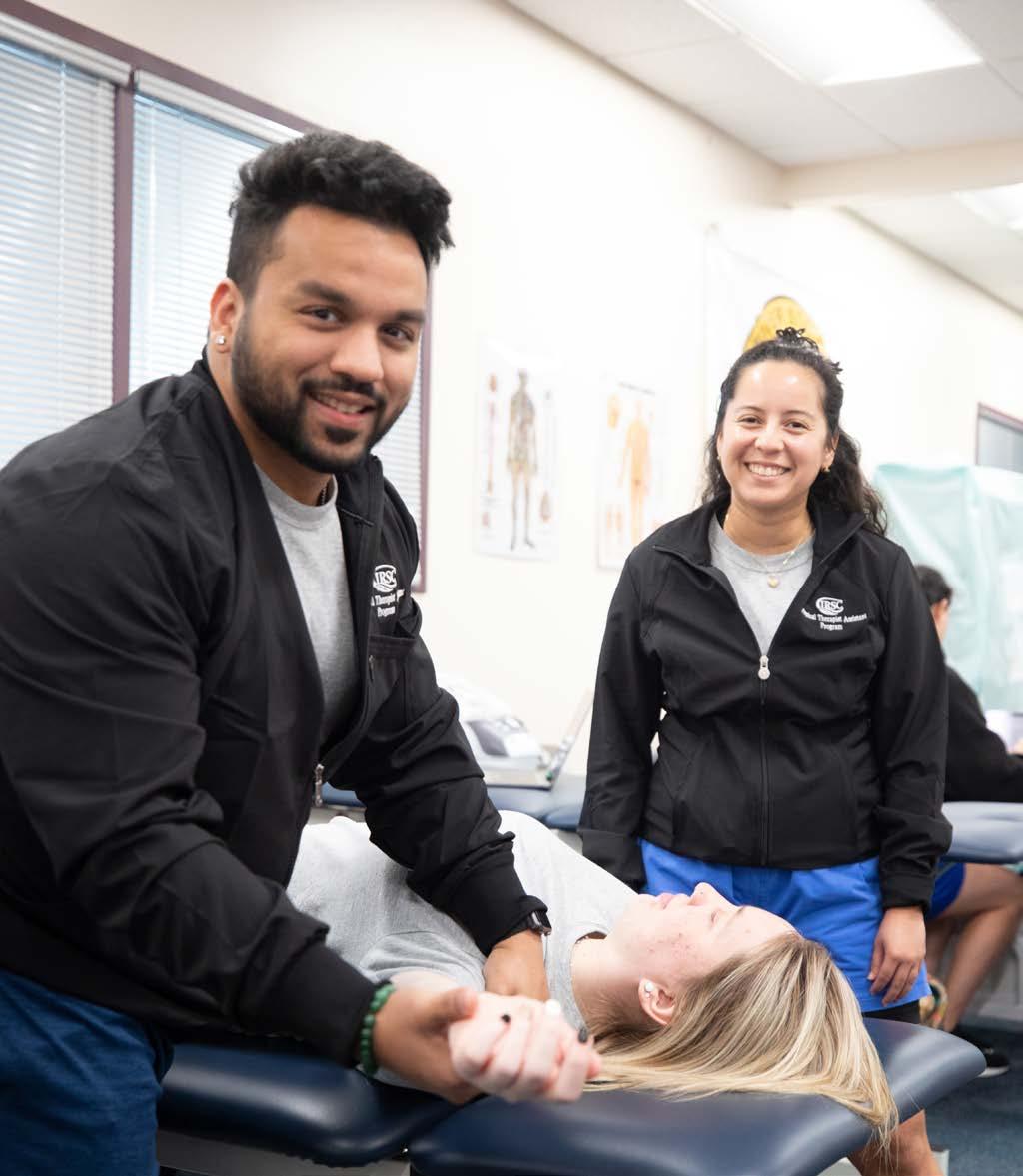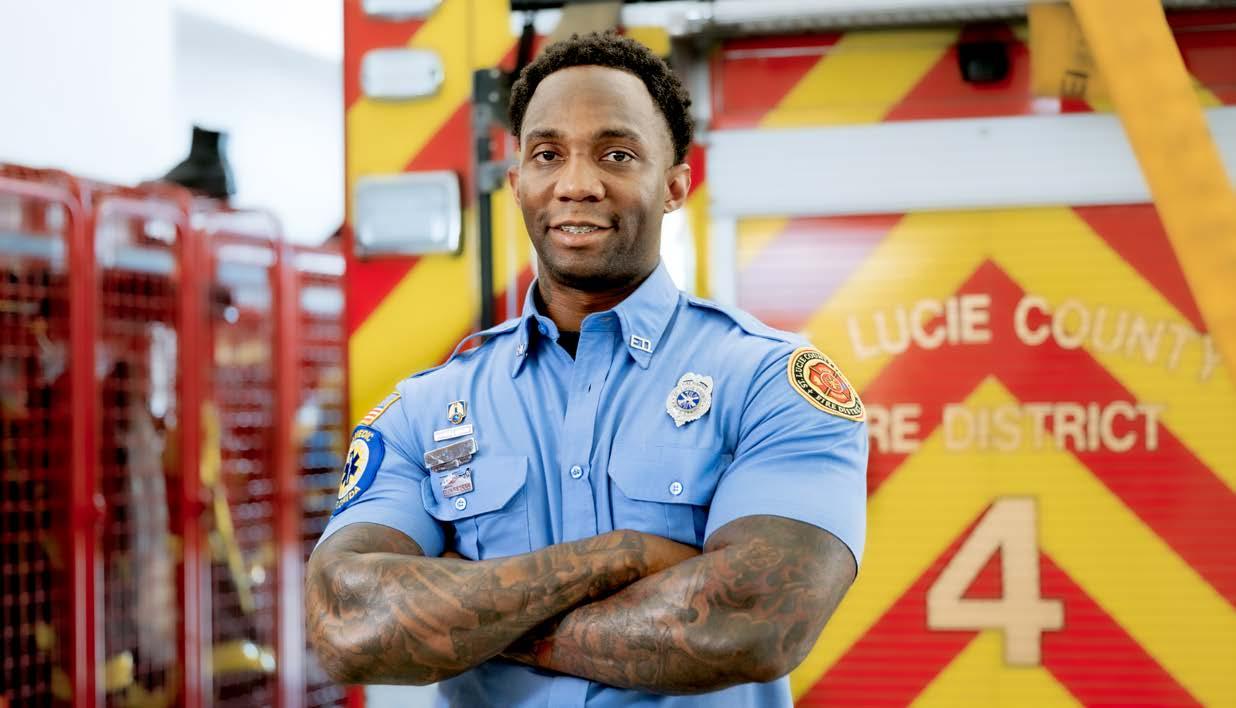
4 minute read
Medical Lab Technology
Requires 2.5 or higher GPA
Medical laboratory technologists enjoy careers as part of the emerging biotechnology field and diagnostic healthcare team. They process body fluids for chemical, serological and biological analysis for the diagnosis, treatment and prevention of disease. Students completing the program at IRSC, go on to take the American Society of Clinical Pathology (ASCP) and American Association of Bioanalysts (AAB) medical lab technology certification exams, and seek employment in a hospital or independent laboratory.
Advertisement
“The resources at Indian River State College have made it possible to achieve my goal of being a medical laboratory technologist and have groomed me to be a very competitive candidate in my field.”
Michael Kutsner, Alumnus Medical Lab Technology
Nursing— Licensed Practical Nurse
Licensed Practical Nurses (L.P.N.s) are trained to work under the direction of doctors and registered nurses to assist with examining and treating patients; measure and record patient vital signs; prepare and administer injections; dress wounds; assist patients with bathing, dressing and eating; and record the progress of patients. L.P.N.s seek employment at a hospital, physician’s office, clinic, surgery center, nursing home, school system, private home or residential care facility after passing the National Council Licensure Examination.
Nursing—Nursing Assistant




Nursing assistants enjoy rewarding careers under the supervision of nursing and medical staff. Students are trained to identify and meet basic patient care needs for safety, comfort and daily activities—including feeding, bathing, dressing, grooming and transporting of patients. Nursing assistant graduates seek employment in a hospital, nursing home, physician’s office, clinic, long-term care facility or private home.

Associate Degree in Nursing— Registered Nurse (R.N.)
Requires 3.0 or higher GPA
Registered Nurses (R.N.s) assess patient health problems and needs, provide hands-on daily care, monitor patient progress, educate, manage and supervise. R.N.s seek employment at a hospital, physician’s office, clinic, surgery center, nursing home, school system, private home or residential care facility after passing the National Council Licensure Examination.
On average, nearly 100% of IRSC Registered Nursing program graduates are working in either a full- or part-time position as a Registered Nurse 9 months after graduation.*
Bachelor’s Degree in Nursing—
R.N. to B.S.N.

Requires 2.5 or higher GPA; an active, unrestricted home state of Florida Registered Nurse License; Florida residency declaration for tuition purposes; a diploma in Nursing, A.A.S. Degree or A.S. Degree in Nursing.



Registered Nurses ready for advancement to leadership and management positions complete the Bachelor’s Degree in Nursing for additional training, positioning them for advancement with a highly valued credential.

Building on the skills, knowledge and experiences from the Associate Degree, the nurse prepared with a Baccalaureate Degree utilizes an evidence-based practice model. This model uses the best scientific evidence, based on clinical experience and research, while incorporating patient preferences and values in the practice of professional nursing care. This dynamic program offers online didactic lectures with experiential learning opportunities.
The IRSC A.D.N. and R.N. to B.S.N. Nursing programs are accredited by the Accreditation Commission for Education in Nursing (ACEN).
“I’m truly grateful to IRSC. I started as a surgical tech in women’s health and, in 2017, began working as an R.N. after receiving my degree. Now with a B.S.N. in hand, I’ve landed a new position in labor and delivery.”

Melissa Earman, Alumna Labor and Delivery R.N. Lawnwood Regional Medical Center
On average, nearly 100% of IRSC Registered Nurse to B.S.N. program graduates are working in either a full- or part-time position as a nurse within 6 months of graduation.*
* Recent graduate outcome data. Not a guarantee.
Phlebotomy

Phlebotomists enjoy rewarding careers as vital members of the healthcare team—trained to draw blood for tests, transfusions, donations or research. They also label, sort and record blood specimens; prepare blood smears; and provide comfort to patients during blood draws.

Phlebotomists are usually employed at a hospital, clinic, laboratory or healthcare facility. Many are able to set their own schedule.



Pharmacy Technician
Pharmacy technicians enjoy rewarding careers as vital members of the healthcare team— trained to prepare medications under the direction of a pharmacist. They measure, mix, count out, label and record amounts and dosages of medications according to prescription orders. Graduates of the IRSC Pharmacy Technician program take the National Pharmacy Technician Certification Examination, and may seek employment in a retail pharmacy, hospital or nursing facility. Others choose to continue their education to become a pharmacist by completing the Associate in Arts Degree program prior to transferring to a university.

Physical Therapist Assistant
Requires 3.0 or higher GPA
Physical Therapist Assistants (PTAs) work under the direction of a physical therapist to assist patients in improving their mobility, restoring function and relieving their pain. They are trained to prevent or limit permanent physical disabilities of patients suffering from injuries or disease. Graduates of the IRSC Physical Therapist Assistant program sit for the Florida Jurisprudence Examination and the National PTA Licensure Examination, and seek employment in a hospital, physical therapist’s office, skilled nursing facility or home care.
The PTA program at Indian River State College is accredited by the Commission on Accreditation in Physical Therapy Education (CAPTE).


Radiography
Requires 3.0 or higher GPA
Radiographers enjoy rewarding careers as valued members of the healthcare team. They are trained to take x-rays and CAT scans to assist in diagnosing medical conditions. Graduates of the IRSC Radiography program take the national certifying examination given by the American Registry of Radiologic Technologists (A.R.R.T.), and seek employment in a hospital, imaging center or physician’s office.
This IRSC program is accredited by the Joint Review Committee on Education in Radiologic Technology (JRCERT).



“It was another one of my dreams to become a (respiratory care) therapist and they (IRSC) believed that same vision. I’m ecstatic because now I will become the first Firefighter Paramedic Respiratory Therapist in the department.”
Austin Hodge, Alumnus Firefighter, Paramedic and Emergency Technician St. Lucie County Fire District (SLCFD)

Surgical Services Technology




Surgical technologists work under the supervision and delegatory authority of a surgeon to facilitate the safe and effective conduct of invasive and non-invasive surgical procedures, ensuring that the operating room environment is safe, that equipment functions properly, and that the operative procedure is conducted under conditions that maximize patient safety. Surgical technologists are experts in the theory and application of the principles of asepsis and sterile technique to combine the knowledge of human anatomy, surgical procedures, and implementation and tools and technologies to facilitate a physician’s performance of invasive therapeutic and diagnostic procedure.
The IRSC Surgical Technology program is accredited by the Commission on Accreditation of Allied Health Education Programs (www.caahep.org) upon the recommendation of the Accreditation Review Council on Education in Surgical Technology and Surgical Assisting.
Respiratory Care
Requires 2.5 or higher GPA
Registered respiratory therapists are trained to care for patients with respiratory or other cardiopulmonary disorders. They care for premature infants, elderly patients and patients suffering from heart attacks, drowning and chronic lung disease. Most seek employment in a hospital or other medical facility.
The IRSC Respiratory Care program is accredited by the Commission on Accreditation for Respiratory Care (CoARC).
On average, 100% of IRSC Surgical Services Technology graduates are working either full- or part-time as a certified surgical technologist 1 year after graduation.*










